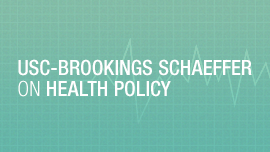This is an incredibly exciting time in biomedical research. New discoveries are announced almost every week that bring us closer to managing cancer and other life-threatening diseases. We are attacking these illnesses at the molecular and genetic levels. In cancer, for example, scientists have gone beyond treating the specific organ plagued by a primary tumor — such as the breast or lung — and are instead going after the genetic mutations that created the cancers in the first place. These new approaches hold the promise of easing suffering and extending lives.
Yet the pace at which these new discoveries are being turned into widely available, potentially life-saving therapies remains frustratingly slow. We are cancer research advocates and a former commissioner of the Food and Drug Administration. We believe more must be done to speed the development and delivery of treatments for cancer and many other diseases based on proven science, without compromising safety — indeed, while increasing our confidence in these potentially valuable treatments.
At a time of seemingly perennial gridlock in Washington, the U.S. Congress has emerged as a surprising catalyst for such change. A large bipartisan effort over the past year has identified ways to speed the availability of safe and more effective treatments for patients by taking full advantage of the latest science. That is what underpins the 21st Century Cures Act (HR 6) now making its way through Congress.
HR 6 is an important step in the right direction. The bill sets up frameworks to develop and evaluate data from newly discovered biomarkers — molecular signatures that indicate disease — that can determine the safety and effectiveness of new treatments. Armed with this critically important information, the FDA can better evaluate the risks and benefits of new drugs. It also creates mechanisms for the experts at the FDA — the best in the world — to use public-private scientific collaborations to develop better science and evidence.
New technology is enabling us to collect and analyze scientific and clinical data in ways that were not possible even a decade ago. For example, we can use genetic analysis to see if a drug that works on a genetic mutation present in breast cancer will work on the same mutation that’s causing prostate cancer. We can use that knowledge to speed up the expanded use of the drug, while using further clinical trials and observation to ensure safety.
Another overdue new step is the establishment of processes that will capture experiences that patients actually have in using new treatments. Historically, drug development measures the response against a disease, such as tumor growth, not taking into consideration quality of life experience. This bill sets up a new framework that puts patients at the center of drug development by incorporating the impact of treatment on their daily lives.
The systems for gathering evidence from electronic records and other clinical data are getting better, and this fact is acknowledged by the bill. How these emerging methods are used in making decisions about regulatory approval remains solely the discretion of the FDA.
Congress has moved before in a bipartisan manner to update the approval processes at FDA to reflect cutting-edge science and address public health needs. In the early 1990s, Congress gave the agency new funding through user fees and restructured its review process as a result of the AIDS crisis. In 2007, Congress created a new program to allow FDA to work with private insurers and health systems to monitor the performance of approved drugs. In 2012, Congress created a new “breakthrough” status for certain promising new drug treatments.
The approaches embodied in the 21st Century Cures Act are thoughtful and broad-based efforts to continue this tradition of strengthening the evidence and science used to develop and regulate medical products. The technology and scientific knowledge to support them didn’t exist before. They do today, and we need to take advantage of them.
Just as was the case in the previous efforts, the 21st Century Cures Act does not reduce safety standards. Nothing could be further from the truth: the FDA’s authority for maintaining the gold standard for safety and effectiveness remains unchanged. Rather, the bill will allow the FDA to utilize today’s rapidly evolving science to support that standard, while explicitly prohibiting the agency from approving a drug based on a lower standard of evidence.
HR 6 also creates vital funding streams for FDA and NIH that would not likely be available through regular budget processes over the next few years — $8.75 billion for NIH and $550 million for FDA. This money will save lives.
Patient safety should and will always be paramount. But as science continues to progress, it will present opportunities to gain knowledge that can help speed safe and effective new treatments to the people who desperately need them. Too many patients have no place to turn. We have an unprecedented opportunity now to change that.
The Brookings Institution is committed to quality, independence, and impact.
We are supported by a diverse array of funders. In line with our values and policies, each Brookings publication represents the sole views of its author(s).

Commentary
Congress Must Pass 21st Century Cures Act Now
July 9, 2015